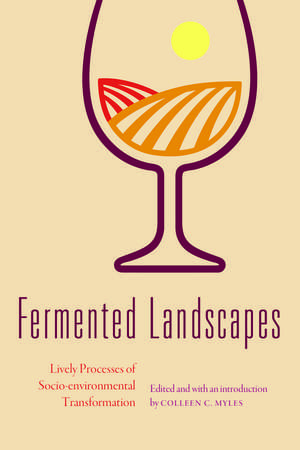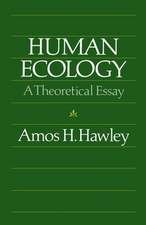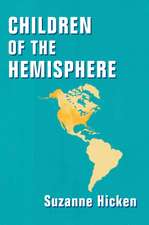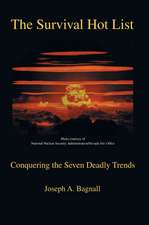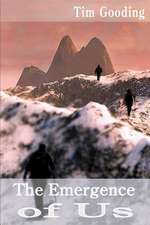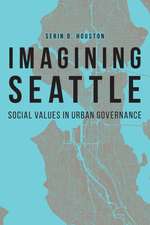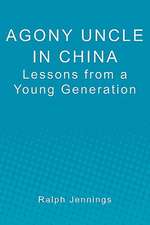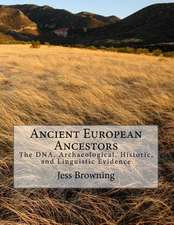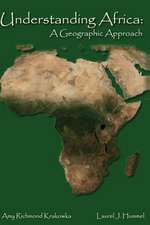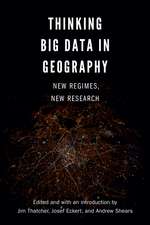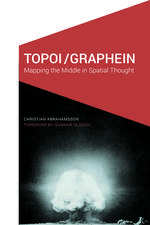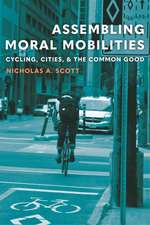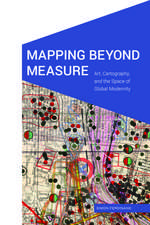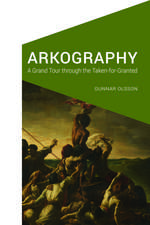Fermented Landscapes: Lively Processes of Socio-environmental Transformation
Editat de Colleen C. Mylesen Limba Engleză Hardback – 31 mar 2020
This collection includes a variety of perspectives on wine, beer, and cider geographies, as well as the geography of other fermented products, considering the use of “local” materials in craft beverages as a function of neolocalism and sustainability and the nonhuman elements of fermentation. Investigating the environmental, economic, and sociocultural implications of fermentation in expected and unexpected places and ways allows for a complex study of rural-urban exchanges or metabolisms over time and space—an increasingly relevant endeavor in socially and environmentally challenged contexts, global and local.
Preț: 402.07 lei
Nou
Puncte Express: 603
Preț estimativ în valută:
76.96€ • 83.62$ • 64.69£
76.96€ • 83.62$ • 64.69£
Carte tipărită la comandă
Livrare economică 21 aprilie-05 mai
Preluare comenzi: 021 569.72.76
Specificații
ISBN-13: 9781496207760
ISBN-10: 1496207769
Pagini: 396
Ilustrații: 23 photographs, 5 illustrations, 11 maps, 8 tables, 1 graph, 3 recipes, index
Dimensiuni: 152 x 229 x 15 mm
Greutate: 0.74 kg
Editura: Nebraska
Colecția University of Nebraska Press
Locul publicării:United States
ISBN-10: 1496207769
Pagini: 396
Ilustrații: 23 photographs, 5 illustrations, 11 maps, 8 tables, 1 graph, 3 recipes, index
Dimensiuni: 152 x 229 x 15 mm
Greutate: 0.74 kg
Editura: Nebraska
Colecția University of Nebraska Press
Locul publicării:United States
Notă biografică
Colleen C. Myles is an associate professor of geography at Texas State University. For more information about the author, visit her website: fermentedlandscapes.wp.txstate.edu
Cuprins
List of Illustrations
List of Tables
Acknowledgments
Introduction
Colleen C. Myles
Part 1. Conceptualizing the Role of Fermentation in Processes of Landscape Change
1. Fermented Landscapes: Considering the Macro Consequences of Micro(be) Processes of Socio-environmental Transformation
Colleen C. Myles
2. Booze as a Public Good? How Localized, Craft Fermentation Industries Make Place, for Better or Worse
Colleen C. Myles, Christopher R. Holtkamp, Innisfree McKinnon, Vaughn Bryan Baltzly, and Colton Coiner
3. Landscapes of Failure: Why Do Some Wine Regions Not Succeed?
John Overton
Part 2. Landscapes of Ferment, Alcoholic or Otherwise
4. Leaving the Old Kentucky Home: Emerging Landscapes of Bourbon Production
Christopher R. Holtkamp, Brendan L. Lavy, and Russell C. Weaver
5. Apples and Actor-Networks: Exploring Apples as Actors in English Cider
Walter W. Furness and Colleen C. Myles
6. Migration and the Evolving Landscape of U.S. Beer Geographies
Mark W. Patterson, Nancy Hoalst-Pullen, and Sam Batzli
7. The Goût du Terroir and Culinary Culture of Bloody Mary Cocktails in the United States
Paul Zunkel
8. Farm-to-Bar and Bean-to-Bar Chocolate on Kauaʻi and the Big Island, Hawaiʻi: An Industry Profile and Quality Considerations
Ryan E. Galt
9. Kombucha Culture: An Ethnography of Fermentos in San Marcos, Texas
Elizabeth Yarbrough, Colleen C. Myles, and Colton Coiner
Part 3. Perspectives on the Possibilities and Limitations of Linking Fermentation and Landscape
10. Fermentation and Kitchen/Laboratory Spaces
Maya Hey
11. Zymurgeography? Biotechnological Ferments and the Risks of Fermentation Fetishism
Andy Murray
12. Raw Power: For a (Micro)biopolitical Ecology of Fermentation
Eric Sarmiento
13. The Spandrels of San Marcos? On the Very Notion of Landscape Ferment as a Research Paradigm
Vaughn Bryan Baltzly
14. On the Future of Fermented Landscapes as a Focus of Study
Colleen C. Myles, Walter W. Furness, and Shadi Maleki
Contributors
Index
List of Tables
Acknowledgments
Introduction
Colleen C. Myles
Part 1. Conceptualizing the Role of Fermentation in Processes of Landscape Change
1. Fermented Landscapes: Considering the Macro Consequences of Micro(be) Processes of Socio-environmental Transformation
Colleen C. Myles
2. Booze as a Public Good? How Localized, Craft Fermentation Industries Make Place, for Better or Worse
Colleen C. Myles, Christopher R. Holtkamp, Innisfree McKinnon, Vaughn Bryan Baltzly, and Colton Coiner
3. Landscapes of Failure: Why Do Some Wine Regions Not Succeed?
John Overton
Part 2. Landscapes of Ferment, Alcoholic or Otherwise
4. Leaving the Old Kentucky Home: Emerging Landscapes of Bourbon Production
Christopher R. Holtkamp, Brendan L. Lavy, and Russell C. Weaver
5. Apples and Actor-Networks: Exploring Apples as Actors in English Cider
Walter W. Furness and Colleen C. Myles
6. Migration and the Evolving Landscape of U.S. Beer Geographies
Mark W. Patterson, Nancy Hoalst-Pullen, and Sam Batzli
7. The Goût du Terroir and Culinary Culture of Bloody Mary Cocktails in the United States
Paul Zunkel
8. Farm-to-Bar and Bean-to-Bar Chocolate on Kauaʻi and the Big Island, Hawaiʻi: An Industry Profile and Quality Considerations
Ryan E. Galt
9. Kombucha Culture: An Ethnography of Fermentos in San Marcos, Texas
Elizabeth Yarbrough, Colleen C. Myles, and Colton Coiner
Part 3. Perspectives on the Possibilities and Limitations of Linking Fermentation and Landscape
10. Fermentation and Kitchen/Laboratory Spaces
Maya Hey
11. Zymurgeography? Biotechnological Ferments and the Risks of Fermentation Fetishism
Andy Murray
12. Raw Power: For a (Micro)biopolitical Ecology of Fermentation
Eric Sarmiento
13. The Spandrels of San Marcos? On the Very Notion of Landscape Ferment as a Research Paradigm
Vaughn Bryan Baltzly
14. On the Future of Fermented Landscapes as a Focus of Study
Colleen C. Myles, Walter W. Furness, and Shadi Maleki
Contributors
Index
Recenzii
“A must-read for anyone interested in food geographies, craft beer and wine, rural geography, local economic development, and political ecology.”—Roger M. Picton, Journal of Historical Geography
“Fermented Landscapes serves up an expansive, methodologically diverse array of theoretical and empirical approaches to the study of fermented foods and should give any aspiring researcher a wealth of inspiration to expand their thinking about the connections between people, place, and foodstuffs in the midst of transmogrification.”—Steven M. Schnell, professor of geography at Kutztown University of Pennsylvania and editor of Journal of Cultural Geography
“Fermented Landscapes is a must-read addition to the literature. Myles and the other contributors to the volume provide the reader with a series of eclectic insights into the process of fermentation and the landscapes that result. The breadth of the products considered (from chocolate to kombucha) and the landscapes visited (from Kentucky to Hawai‘i) make for particularly fascinating reading.”—Neil Reid, professor of geography and planning at the University of Toledo
Descriere
Fermented Landscapes applies the concept of fermentation as a mechanism through which to understand and analyze processes of landscape and cultural change as related to the production and consumption of fermented products.
